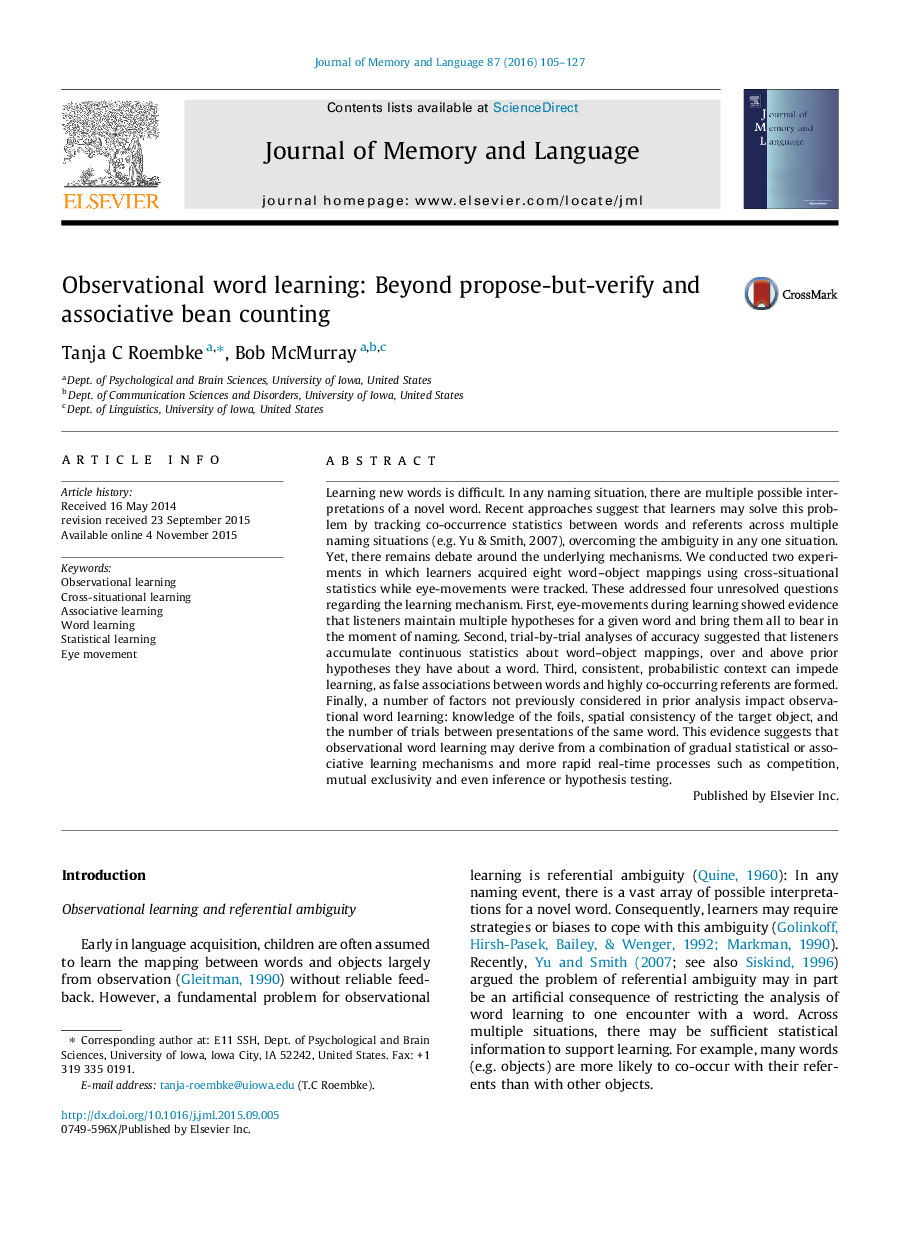| کد مقاله | کد نشریه | سال انتشار | مقاله انگلیسی | نسخه تمام متن |
|---|---|---|---|---|
| 7296981 | 1474632 | 2016 | 23 صفحه PDF | دانلود رایگان |
عنوان انگلیسی مقاله ISI
Observational word learning: Beyond propose-but-verify and associative bean counting
ترجمه فارسی عنوان
یادگیری واژهی دیدنی: فراتر از شمارشدهی پیشنهاد شده اما تأیید و پیوندی
دانلود مقاله + سفارش ترجمه
دانلود مقاله ISI انگلیسی
رایگان برای ایرانیان
کلمات کلیدی
یادگیری بصری، یادگیری متقابل، یادگیری وابسته یادگیری کلمه، یادگیری آماری، جنبش چشم،
موضوعات مرتبط
علوم زیستی و بیوفناوری
علم عصب شناسی
علوم اعصاب شناختی
چکیده انگلیسی
Learning new words is difficult. In any naming situation, there are multiple possible interpretations of a novel word. Recent approaches suggest that learners may solve this problem by tracking co-occurrence statistics between words and referents across multiple naming situations (e.g. Yu & Smith, 2007), overcoming the ambiguity in any one situation. Yet, there remains debate around the underlying mechanisms. We conducted two experiments in which learners acquired eight word-object mappings using cross-situational statistics while eye-movements were tracked. These addressed four unresolved questions regarding the learning mechanism. First, eye-movements during learning showed evidence that listeners maintain multiple hypotheses for a given word and bring them all to bear in the moment of naming. Second, trial-by-trial analyses of accuracy suggested that listeners accumulate continuous statistics about word-object mappings, over and above prior hypotheses they have about a word. Third, consistent, probabilistic context can impede learning, as false associations between words and highly co-occurring referents are formed. Finally, a number of factors not previously considered in prior analysis impact observational word learning: knowledge of the foils, spatial consistency of the target object, and the number of trials between presentations of the same word. This evidence suggests that observational word learning may derive from a combination of gradual statistical or associative learning mechanisms and more rapid real-time processes such as competition, mutual exclusivity and even inference or hypothesis testing.
ناشر
Database: Elsevier - ScienceDirect (ساینس دایرکت)
Journal: Journal of Memory and Language - Volume 87, April 2016, Pages 105-127
Journal: Journal of Memory and Language - Volume 87, April 2016, Pages 105-127
نویسندگان
Tanja C Roembke, Bob McMurray,
